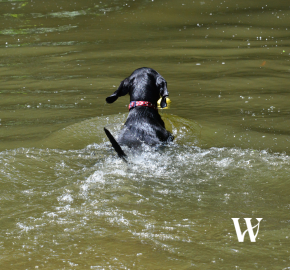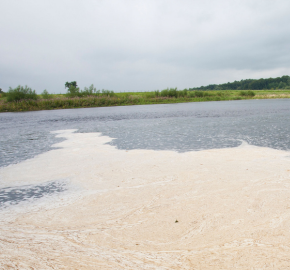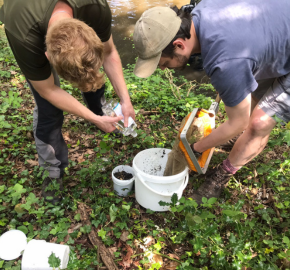Sampling in sewage – a volunteer view on the river Chess
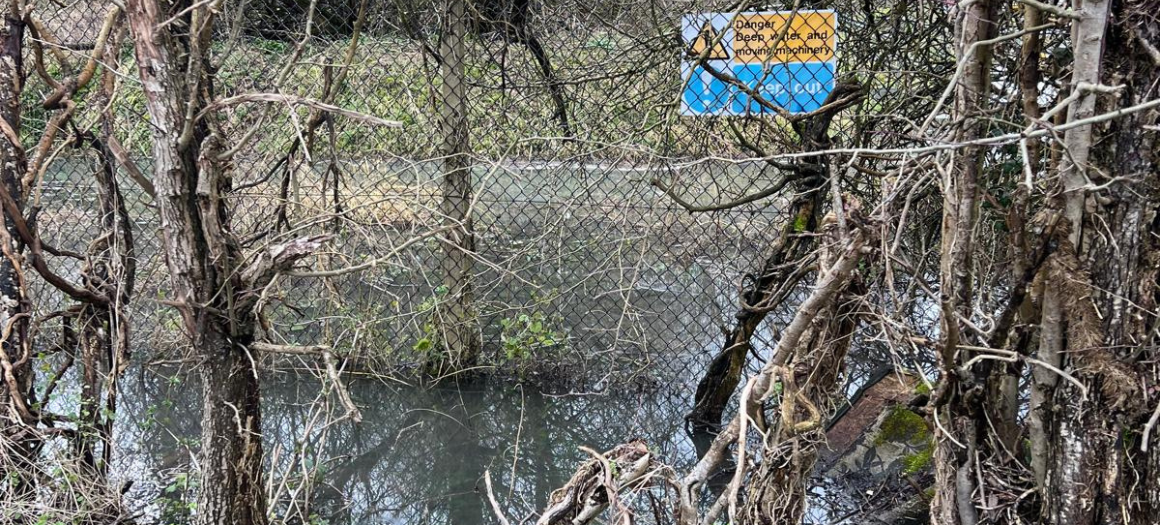
The river Chess is a chalk stream in the Chilterns Area of Outstanding Natural Beauty. Despite its ecological significance, raw sewage has been pumped directly into the river (and the neighbouring Little Chess) from overflowing storm tanks at the nearby Chesham sewage treatment works.
The WildFish SmartRivers project has six monitoring sites on the river Chess. The first site is upstream of the Chesham sewage treatment works and site two is downstream of the works. Site three is on the Little Chess, which runs next to the main river. Sites four, five and six continue down the main river, ending at Rickmansworth.
During spring, volunteers were not able to get in the water to take SmartRivers samples because of the sewage contamination. Instead, staff had to complete the collection of samples with appropriate protection.
Figure 01 (above) shows footage just downstream from the sewage outfall on the river Chess taken by Paul Jennings. One of our SmartRivers volunteers, we talked to Paul about the impact of ongoing sewage pollution on the river Chess and its local community.
What impact is sewage pollution having on recreational river users within your local community?
The Chess is very popular with the public and these sewage discharges have impacted many activities. We can have up to 10,000 students and school children visit the river for trips and research projects, many of these have had to be cancelled or rearranged. Local communities have also felt the impact, fishing clubs have had to stop fishing and walking groups have had to avoid letting dogs in the river. Local farmers have also been impacted, changing grazing locations because of sewage contaminated water breaching the banks and polluting meadows.
How are the sewage discharges impacting SmartRivers sampling?
Any in stream monitoring had to stop at locations downstream of the outfall pipe from the 29 February to 8 June. We have only just started to resume some monitoring.
Have you noticed visible declines in wildlife?
The presence of wildlife has been difficult to assess. There have been no visible fish kills but the true impact on fish numbers will not be known until next year. There will have been trout eggs and fry in the river while the sewage pollution was taking place which could have been effected. There has been a proliferation of filamentous algae suppressing some in stream weed growth and we have seen a huge number of chironomid larvae in the river close to the outfall pipe for about a mile downstream.
How is sewage pollution inhibiting your attempts to restore and protect the river?
Volunteer opportunities have been lost at a crucial time for gathering data about the health of the river. Added to which, a number of critical bank repair projects have been postponed or delayed that help combat strong flows due to exceptionally high groundwater and flash floods in the area. In stream habitat improvement work has also been delayed.
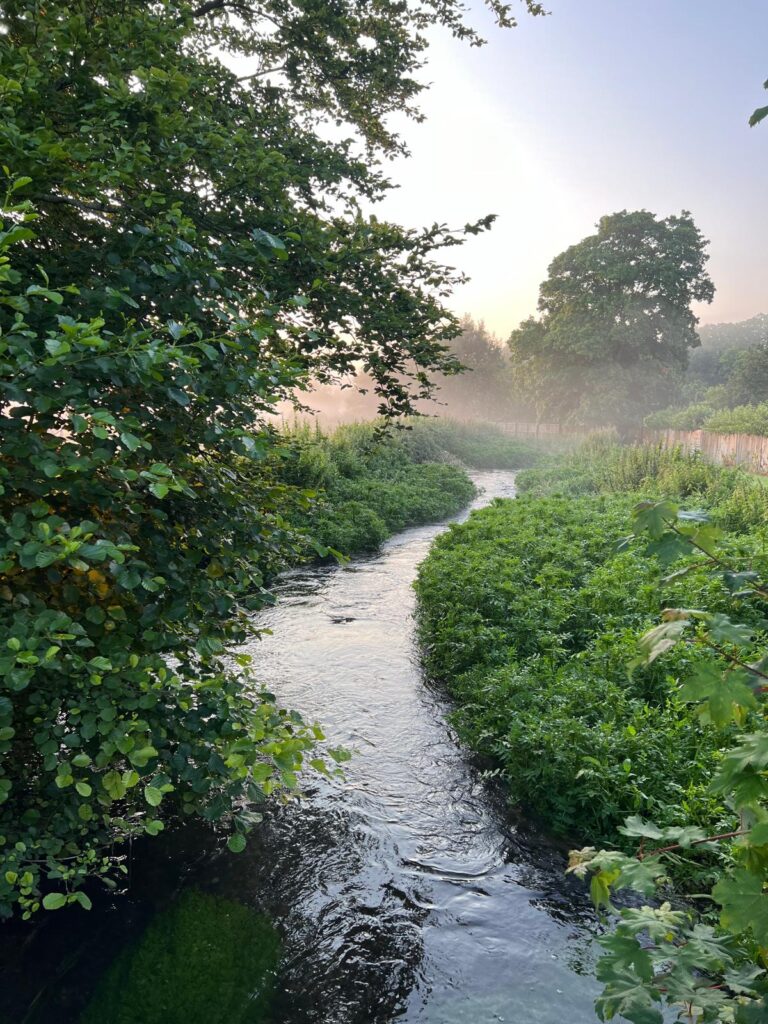
Figure 02: above the surface on the river Chess, what lies beneath paints a very different picture ©PaulJennings
The Chess is not alone. Rivers, lakes and streams across the country are flooded with sewage and wild fish populations pay the price.
The solution is simple – regulators must enforce the law as clarified in our judicial review. Water companies cannot be allowed to use our rivers as sewers. Thanks to SmartRivers volunteers like Paul, we have the data to put pressure on like never before.

